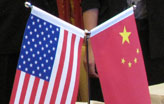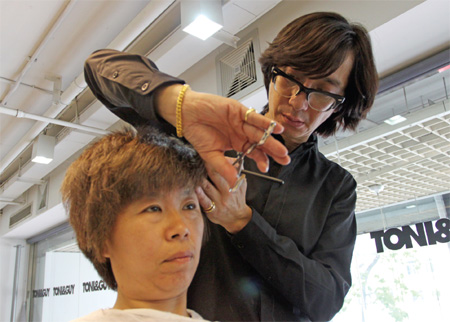Economy
The perfect cut
Updated: 2011-07-15 12:34
By Fu Yu (China Daily European Weekly)
"Over 70 percent of the hair and beauty salons are manned by the self employed, are small in size and started with minimal capital," says Lu.
But for many like the 27-year old Moria Mao, surviving in the hair care industry has been a hair-raising tale. Starting off some 10 years ago, Mao has seen the industry go through its different phases even as competition intensified and the profit margins shrank.
Working as a hairstylist in a mid-sized salon in Beijing, Mao says many of the smaller parlors have gone in price cuts, while many others are selling unqualified hair products of suspect quality to customers.
One reason for such mistrust stems from the fact that the industry does not have any entry barriers. Aspirants do not need to pass any national certification examination, as there are no national standards for the profession, says Mao.
Lack of branding is another reason why the industry has not climbed the standardization peak, say experts. But one reason why there are no strong brands could be due to the personal nature of the industry. Client numbers are built on personal bonding between the stylist and client and hence not too dependent on the brand, says Mao.
Amid the disorganized world of Chinese stylists, overseas stylists stand in splendid isolation. Unlike their Chinese peers, many of them have seen their fortunes boom as the looking good wave has triggered a rush for their services. Adding fuel to the boom has also been the emergence of a strong middle-class who are not reluctant to spend money on such services as they think it would improve their professional and social standing.
|
|
But with demand growing, there is also an acute shortage of trained hair stylists, and this has opened up a wealth of business opportunities for European hairdressing training institutes.
Frankie Chen, who opened the first Toni & Guy hair salon in Beijing eight years ago, says most of his customers are now local people who are well-informed about fashion and are aware of the latest fashion trends in the West.
"Most of my clients want to look like Hollywood stars," the Taiwan-born Chen says. Currently he owns nine salons and a hairdressing academy in Beijing.
"The Chinese market is undoubtedly very big and lucrative, as the rising middle class is constantly looking for a hairstyle makeover," he says.
Most hairdressers in China, however, believe that it was the British hairstylist Vidal Sassoon who is the godfather of the styling industry.
Sassoon launched a geometric, "Bauhaus-inspired" style, also called the bob, a stylish and simple cut that soon became the cynosure of every hairdresser.
Chen admits that there are enough opportunities for professionals like him to make money from the talent shortage in the industry.

Specials

China-US Governors Forum
The first China-US Governors Forum is held July 15 in the Salt Lake City, the United States.

My China story
Foreign readers are invited to share your China stories.

Rare earths export quota
China kept its export quota at almost the same level as last year.
